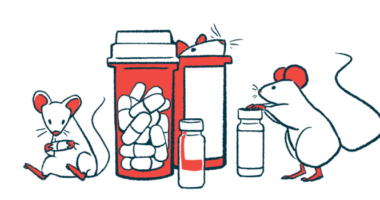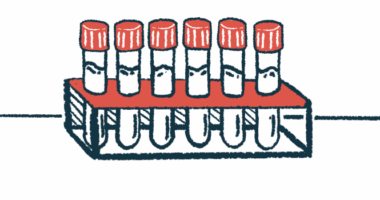What we’ve learned about ALS progression over 15 years
Noninvasive ventilator, clearing of lungs have worked for couple

It’s hard to believe my husband, Todd, has been living with ALS for over 15 years. His limbs are completely paralyzed, and he uses a noninvasive ventilator nearly 24/7. He can still talk and eat, though not without difficulty.
When people with ALS — or those who have a loved one with the disease — learn about Todd, they often ask if he’s done anything that contributes to his longevity.
We’ve lived with this disease long enough to witness the wide range of how it progresses. We’ve seen people try all sorts of alternative treatments and still decline quickly. We’ve also known others who were diagnosed around the same time as Todd and are in better physical shape, at least in some ways.
ALS is incredibly varied. Perhaps someday, when we fully understand what causes it, we’ll identify more subtypes of the disease.
Trying alternative treatments, supplements
Soon after Todd was diagnosed, my aunt called a friend who worked at an alternative medicine clinic in California and asked if they were using anything they thought helped people living with ALS. The clinic was prescribing low-dose naltrexone (LDN), a medication sometimes used off-label in small doses to help modulate the immune system and reduce inflammation.
Todd’s neurologist thought it might help — or at least not hurt — and prescribed it for him. We don’t know if it contributed to his slower-than-average progression, but it does seem to decrease his fatigue when he takes it, so he continues to do so.
Since then, I’ve come across others who tried LDN, but didn’t experience the same slow progression as Todd.
We also experimented with various supplements recommended by Steven Shackel, a man who had survived more than 16 years with ALS at the point when Todd was diagnosed in 2010. We can’t say whether any of those supplements slowed the progression of Todd’s disease. He no longer takes most of them.
We eventually dropped Todd’s supplement regime in favor of things that seem to help symptoms and improve general health, such as guaifenesin (often known by the brand name Mucinex), to help thin mucous so he can more easily clear secretions, and Vitamin D since he doesn’t get out in the sun much. We also think magnesium citrate helps reduce his muscle cramping.
There’s no way to know for sure if any of the supplements have extended his life — no one can do it both ways to compare.
‘You saved my life again’
One thing we’re doing that we’re positive has extended Todd’s life is clearing his lungs. A physical therapist taught me the manual assist cough (also called the Quad cough) years ago, and we still use it regularly to clear secretions that build up every day or two. When Todd has a cold, we rely on it multiple times a day.
After I clear Todd’s lungs, he frequently says, “Thank you. You saved my life again.”
Sleeping position also makes a difference in keeping Todd healthy. When Todd spends too long on his back, even with his noninvasive ventilator, his lungs feel heavy. But when he gets turned side to side at night, his lungs loosen up, allowing him to expel secretions and breathe more easily.
And, of course, Todd has his noninvasive ventilator. He says he knows for sure that he would have died long ago without that machine.
When people reach out to me, I share our experience — remembering how much hope I found in the outliers during those early days after Todd’s diagnosis.
Note: ALS News Today is strictly a news and information website about the disease. It does not provide medical advice, diagnosis, or treatment. This content is not intended to be a substitute for professional medical advice, diagnosis, or treatment. Always seek the advice of your physician or other qualified health provider with any questions you may have regarding a medical condition. Never disregard professional medical advice or delay in seeking it because of something you have read on this website. The opinions expressed in this column are not those of ALS News Today or its parent company, Bionews, and are intended to spark discussion about issues pertaining to ALS.








Johnny5
Hope and faith. I know that this disease can change progression at any time. So I live every day with a positive attitude, because why waste what time I have depressed? Sad and grumpy, or someone with that smile that triggers happiness in everyone around me? Not much of a choice.
My hope and my faith that this is a learning experience every day keeps me going. Never quit!